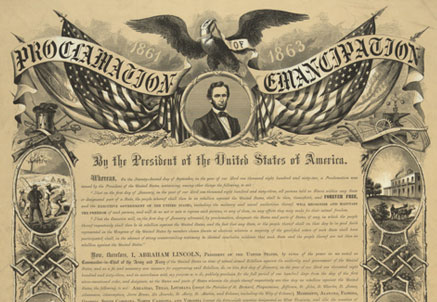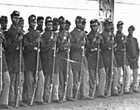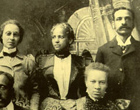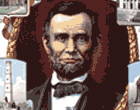Confronting Slavery and Revealing the "Lost Cause"
One of the most sensitive and controversial issues that any Civil War site interpreter will confront is the role of slavery in the South's decision to secede from and take up arms against the United States. Although an argument that slavery played an important role in the coming of the Civil War would raise few eyebrows among academic scholars, for public historians faced with a popular audience unfamiliar with the latest scholarship on the subject such an assertion can be very controversial. Whenever I speak to groups about the Civil War, I am reminded that slavery and the war are often separated in the public mind.
As historian James McPherson explained in a recent article, it is especially difficult for southern whites "to admit - that the noble Cause for which their ancestors fought might have included the defense of slavery." Yet, the best historical scholars over the last generation or more have argued convincingly for the centrality of slavery among the causes of the Civil War. The evidence for such arguments provided in the letters, speeches, and articles written by those who established and supported the Confederacy is overwhelming and difficult to deny. While slavery was not the only cause for which the South fought during the Civil War, the testimony of Confederate leaders and their supporters makes it clear that slavery was central to the motivation for secession and war. When southern whites in the 19th century spoke of the "southern way of life," they referred to a way of life founded on white supremacy and supported by the institution of slavery.
South Carolina led the way when its Charleston convention, held just before Christmas in 1860, declared that the "Union heretofore existing between the State of South Carolina and the other States of North America is dissolved ... " The reason for the drastic action, South Carolina delegates explained in their "Declaration of the Causes which Induced the Secession of South Carolina," was what they termed a broken compact between the federal government and "the slaveholding states." It was the actions of what delegates referred to as "the non-slaveholding states" who refused to enforce the Fugitive Slave Act of 1850 that was the specific example used as evidence for this argument. "In many of these States the fugitive [slave] is discharged from the service of labor claimed,… [and] in the State of New York even the right of transit for a slave has been denied .... " The delegation made clear that the election of Abraham Lincoln in the fall of 1860 as "President of the United States whose opinions and purposes are hostile to Slavery" was the final straw. In the South Carolinian mind the coming of Republican political power signaled, in the words of the convention, "that a war [would] be waged against slavery until it shall cease throughout the United States."






